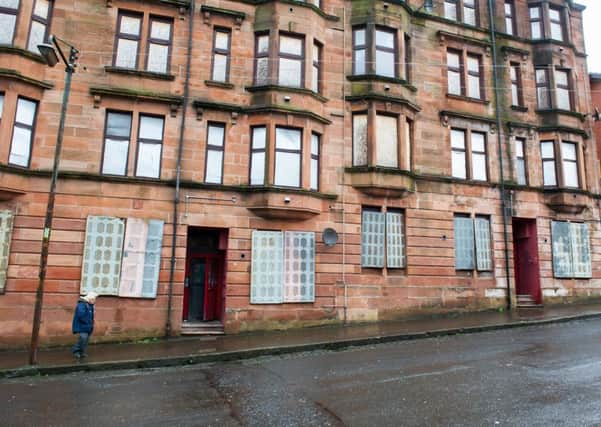David Alexander: Government must put its house in order
This article contains affiliate links. We may earn a small commission on items purchased through this article, but that does not affect our editorial judgement.


At the end of last year there were more than 3,000 living in the city, twice the number accommodated in Birmingham, Manchester or Liverpool.
Initially the claimants were the responsibility of Glasgow City Council housing department and later its successor, the Glasgow Housing Association, but since 2012 the process of finding accommodation has passed to the private sector.
Advertisement
Hide AdAdvertisement
Hide AdSome may question why a city with a history of waiting lists should add to this problem by adopting a policy that increases demand for housing; however, it has to be assumed that the stock involved was what is described, somewhat euphemistically, as “difficult to let”.
Which brings me to the link that exists between this situation and the “two Scotlands” that have emerged since Mrs Thatcher’s right-to-buy legislation was implemented, transforming huge parts of the residential urban landscape.
Council “schemes” that were once characterised by grim municipal uniformity have been given over to individuality as a result of former tenants exploiting the freedom of owner-occupation. Indeed it is now difficult to differentiate some of the more modern ex-council properties with homes built for sale by private developers.
Conversely, the other of the “two Scotlands” relates to publicly-owned housing that has regressed and will only be taken up by those desperate for any type of roof over their heads — asylum-seekers, for example. This stock includes schemes that were problematic from the start but also neighbourhoods that were once denizens of working-class respectability but have since gone downhill.
There is no single reason for this degeneration but one worth mentioning was madcap social engineering during the 1970s. Local authority social workers took the view that people who engaged in anti-social behaviour were simply victims of their own environment. The solution, they believed, was to integrate their “clients” with decent tenants; so when accommodation in a “good stair” became available in would go a “problem family” who, it was hoped, would quickly adopt the same responsibilities and attitudes of their hard-working neighbours.
As anyone with half an ounce of common sense could have predicted, the opposite happened. Consequently, anyone with a bit of nous moved out and the entire block quickly deteriorated — as did others whose residents were unfortunate enough to live within earshot. The outcome? Previously desirable properties degenerating into “sink” housing.
Advertisement
Hide AdAdvertisement
Hide AdOne cannot help compare this situation with the conventional private rented sector where no bona fide agent would ever knowingly place someone with a background of anti-social behaviour into a respectable stair — indeed any stair. A diligent tenant-vetting system is — or should be — an integral part of the property management process because of the ability to “weed out” applicants with the potential to cause problems for their neighbours or run up significant rent arrears.
However even today, municipal and other public landlords are exempt from some of the legislation that Holyrood requires private owners to adhere to, yet there is still a tendency among left-leaning politicians (of which Scotland has a majority) to blame the latter for all the country’s housing ills and in particular a shortage of affordable rented homes for families on relatively low incomes.
Today marks the culmination of an election campaign in which landlords and agents have been seen as easy targets whenever the hot potato of housing crops up. Yet history shows that government (both national and local) has much to answer for and so needs to get its own house in order rather than think up ways of targeting the private letting sector with even more questionable legislation.
• David Alexander is managing director of DJ Alexander